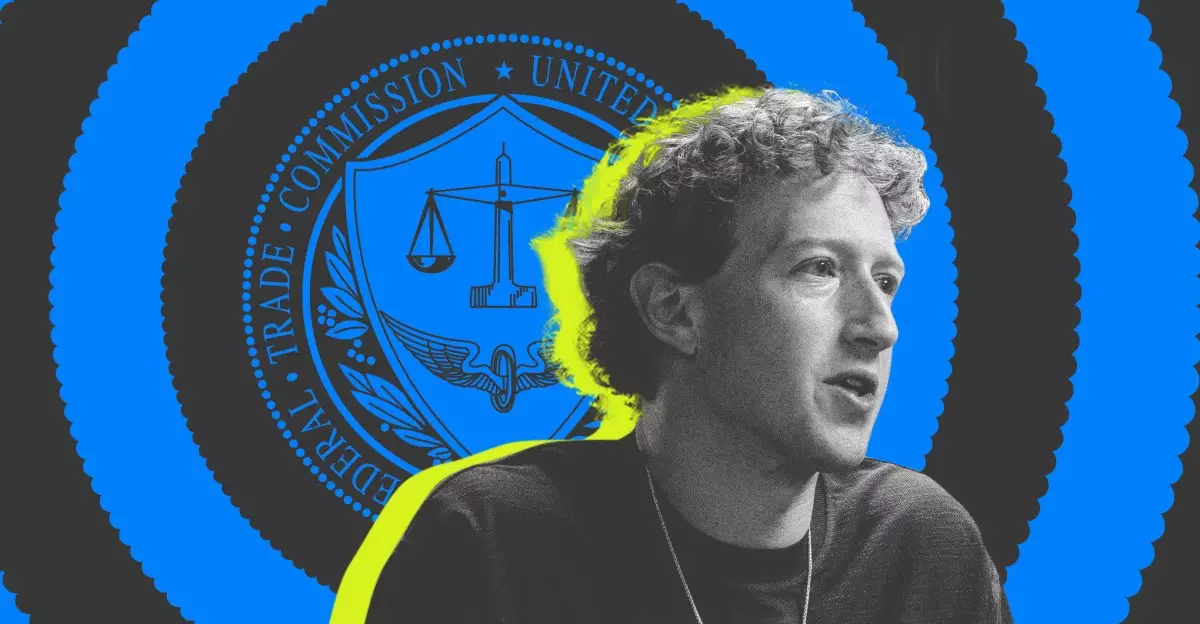The journey of Meta, initially known as Facebook, is one rife with pivotal decisions that have shaped both the company and the broader landscape of social media. At the heart of its evolution lies a range of choices made by its founder and CEO, Mark Zuckerberg. While the company is often lauded for its success, the truth is that it could have taken many divergent paths, some of which could have fundamentally altered its current status and the social media ecosystem at large.
During a recent high-profile antitrust case led by the Federal Trade Commission (FTC), Zuckerberg revealed various alternative scenarios that he and his team once weighed. As he took the stand to defend Meta against claims of monopolistic behavior, he acknowledged ideas that, while seemingly radical, were part of strategic considerations aimed at harnessing competitive advantages. These included propositions to spin off Instagram as a separate entity or evaluate the potential acquisition of Snapchat, which at one point, was viewed as an immediate threat.
Zuckerberg’s disclosures exuded the candidness of a leader confronting both past strategies and present realities. However, they also illustrated a troubling dance with power in the digital marketplace, one where the objective seems to be to outmaneuver opponents rather than innovate in a constructive way. This raises a pertinent question: what does success truly entail in such a highly competitive environment?
Defining the Marketplace: Monopoly or Innovation?
Central to the FTC’s argument is the concept that Meta’s acquisitions have stunted competition by absorbing potential rivals—primarily Instagram and WhatsApp—in order to cement its dominance in what it describes as personal social networking services. This assertion digs deep into the heart of what constitutes a monopoly in the digital age. In his testimony, Zuckerberg challenged the FTC’s characterization of the market as too narrowly defined and insisted that competition remains fierce and fluid.
The reality is that technology is inherently dynamic, with platforms such as TikTok and YouTube posing formidable competition to Facebook. However, the critical piece to unpack here is whether such acquisitions represent proactive growth strategies or merely defensive maneuvers against emerging threats. Zuckerberg described this competitive tension, which resonates with the larger existential struggle for relevance in an industry that evolves overnight. Each strategic acquisition or decision to pivot is a reflection not just of growth ambition, but of fear—fear that perhaps the company is stagnating or losing ground.
Internal Dynamics and Strategic Decisions
Zuckerberg’s testimony also unveiled glimpses into the internal dialogues at Meta regarding its trajectory. Certain communications highlighted his concerns about Meta lagging behind competitors like Instagram, an acknowledgment that underscores the tumultuous nature of leadership in tech. The contemplation of drastic measures—like wiping user friend lists to rekindle the initial allure of the platform—demonstrates a disconnect between innovative exploration and the realities of user engagement.
Would such radical moves benefit the user base, or would they alienate the very people Meta relied upon for growth? These internal discussions suggest that there’s often a thin line between visionary leadership and reckless decision-making—an ambiguity fueled by the pressure to maintain relevance in an ever-competitive digital arena.
The Ethics of Content and Revenue Generation
Another fascinating aspect of the trial involved the strategies Meta employed regarding advertising. Zuckerberg reportedly entertained the idea of creating an ad-only feed, reflecting a shift from user-generated content to advertiser-driven ecosystems. This notion implies a willingness to prioritize revenue generation over user experience, reigniting discussions surrounding ethical practices in the industry. Zuckerberg’s insights reveal the pragmatic mindset wherein monetization becomes paramount, sometimes at the cost of losing touch with users’ needs.
As Meta continues to grapple with regulatory scrutiny, understanding the implications of such advertising strategies is vital—not just for Meta, but for the broader social media landscape. Are platforms sacrificing the quality of user interaction for ad dollars? Should there be a moral compass when determining the balance between engagement and profitability?
In embracing controversial strategies for survival, Meta’s narrative is one that highlights the complexities of ethical choices in the tech industry, challenging our understanding of what acceptable practices are in a rapidly changing market. The upcoming developments in this ongoing antitrust case will inevitably shape not only Meta’s future but also the paradigms of competition, innovation, and ethics in social media.

